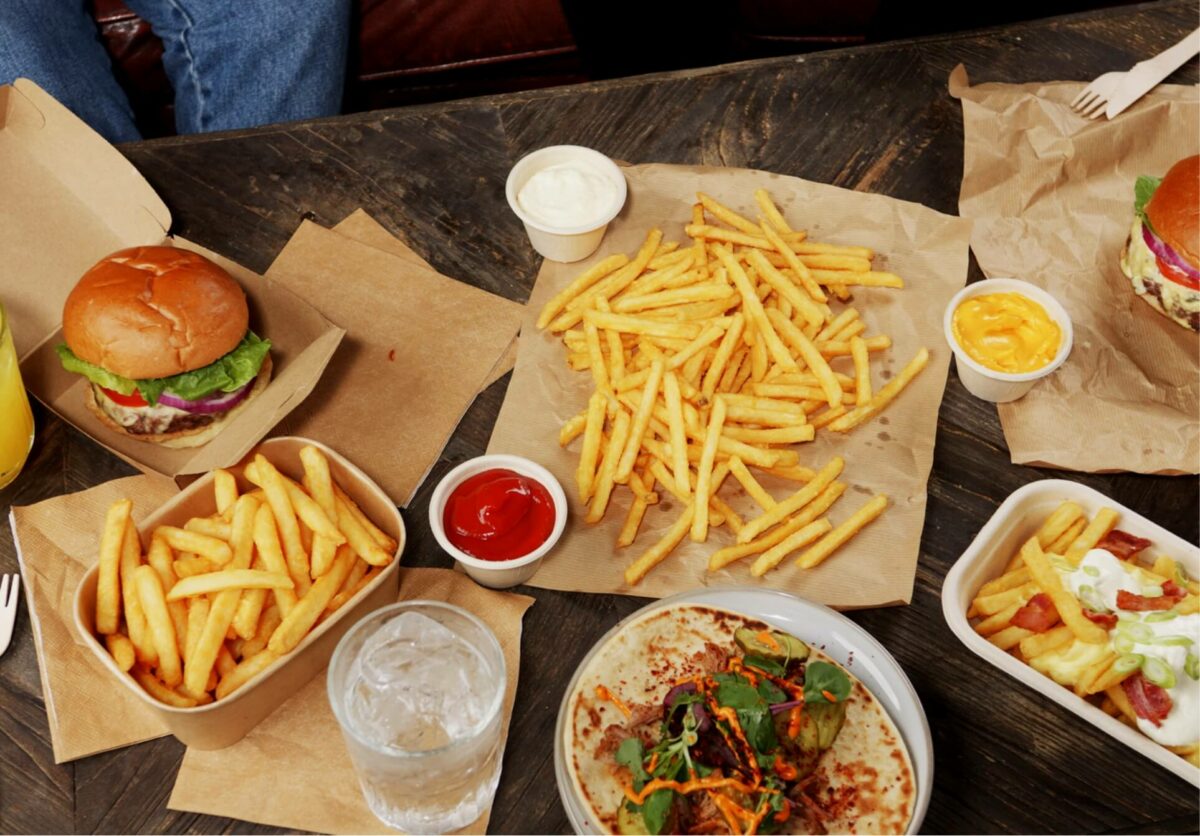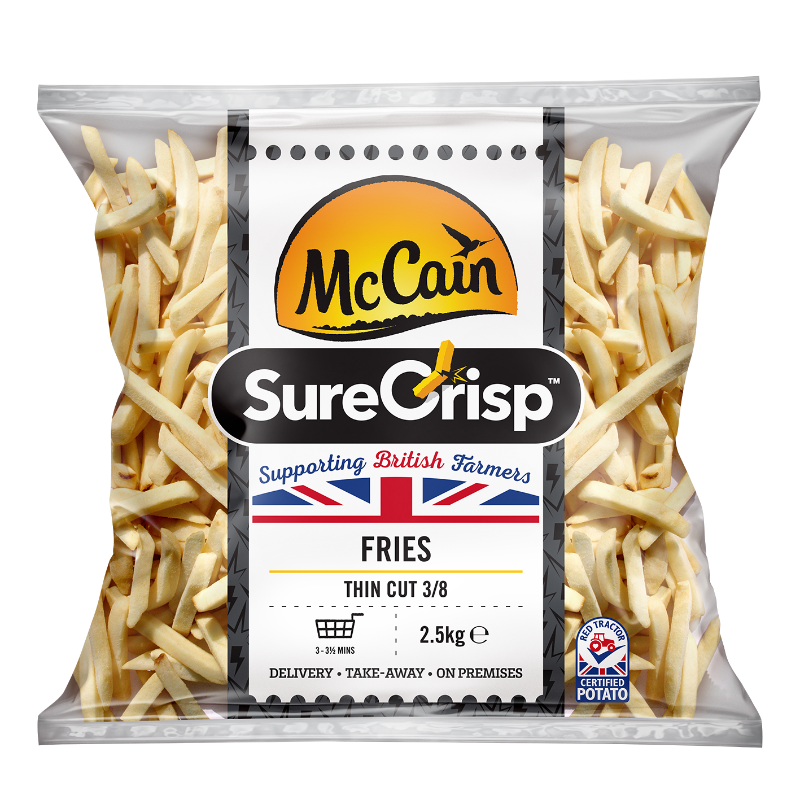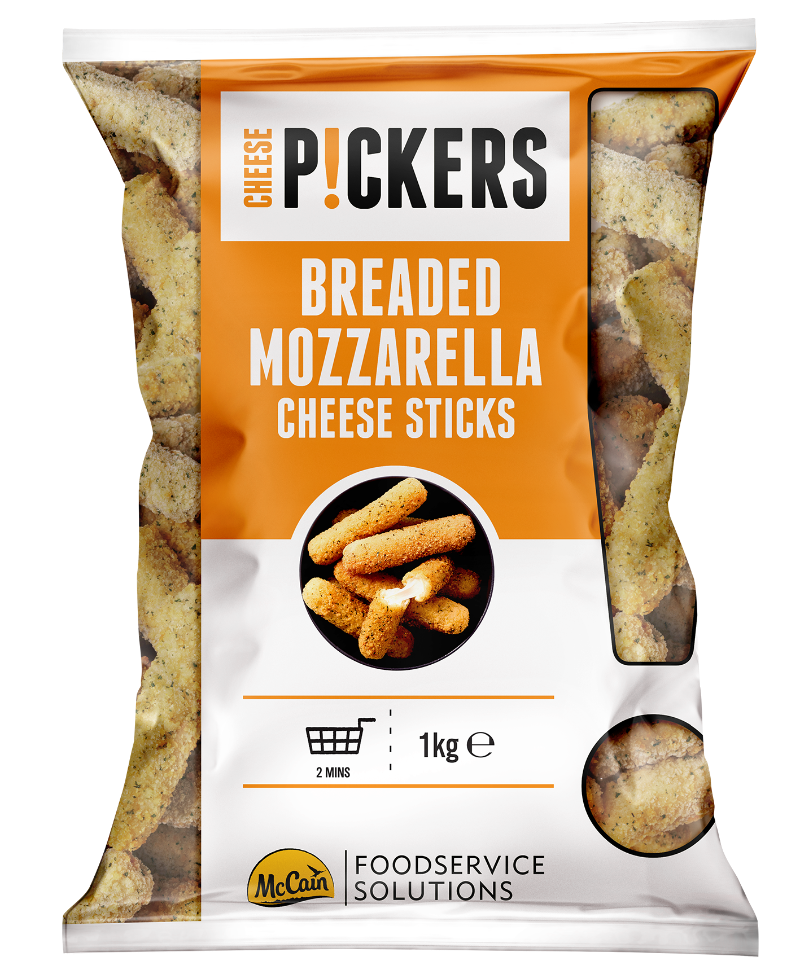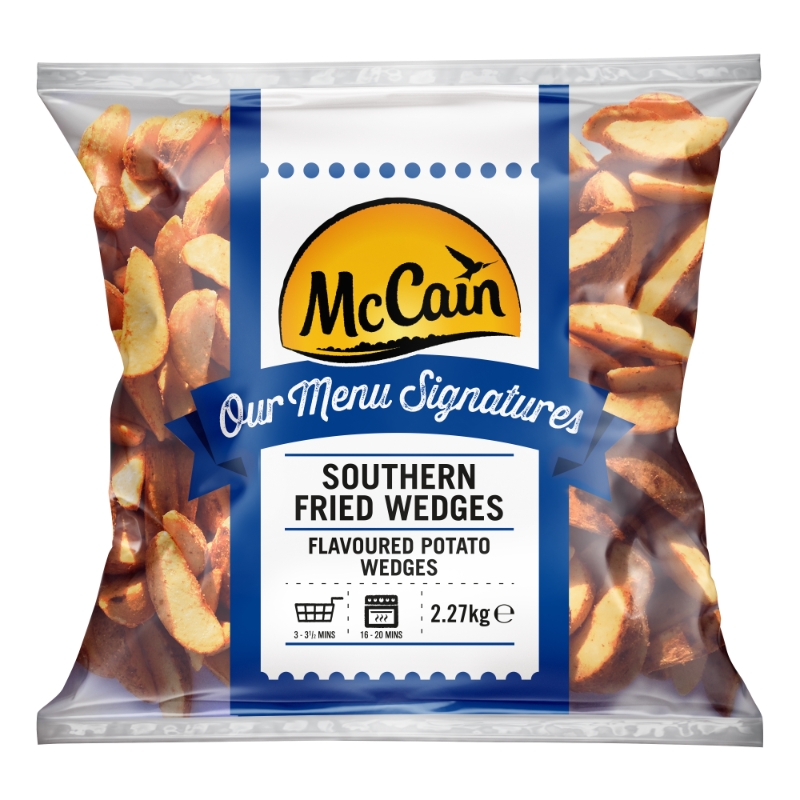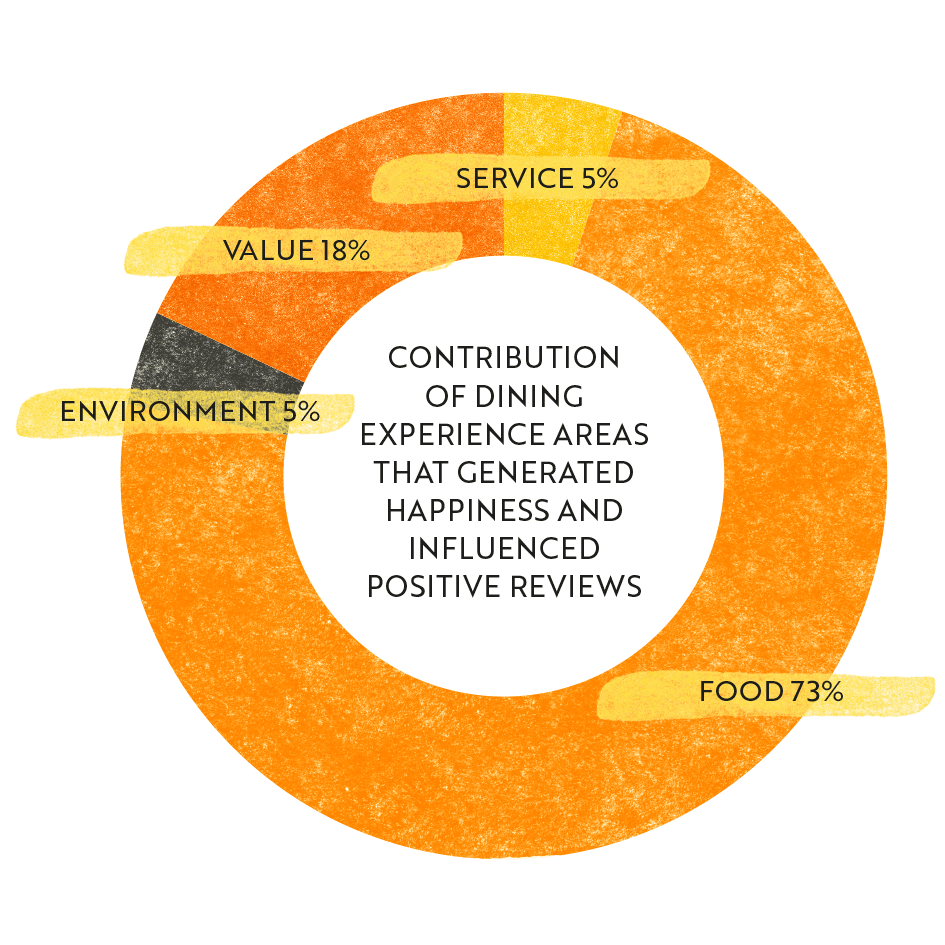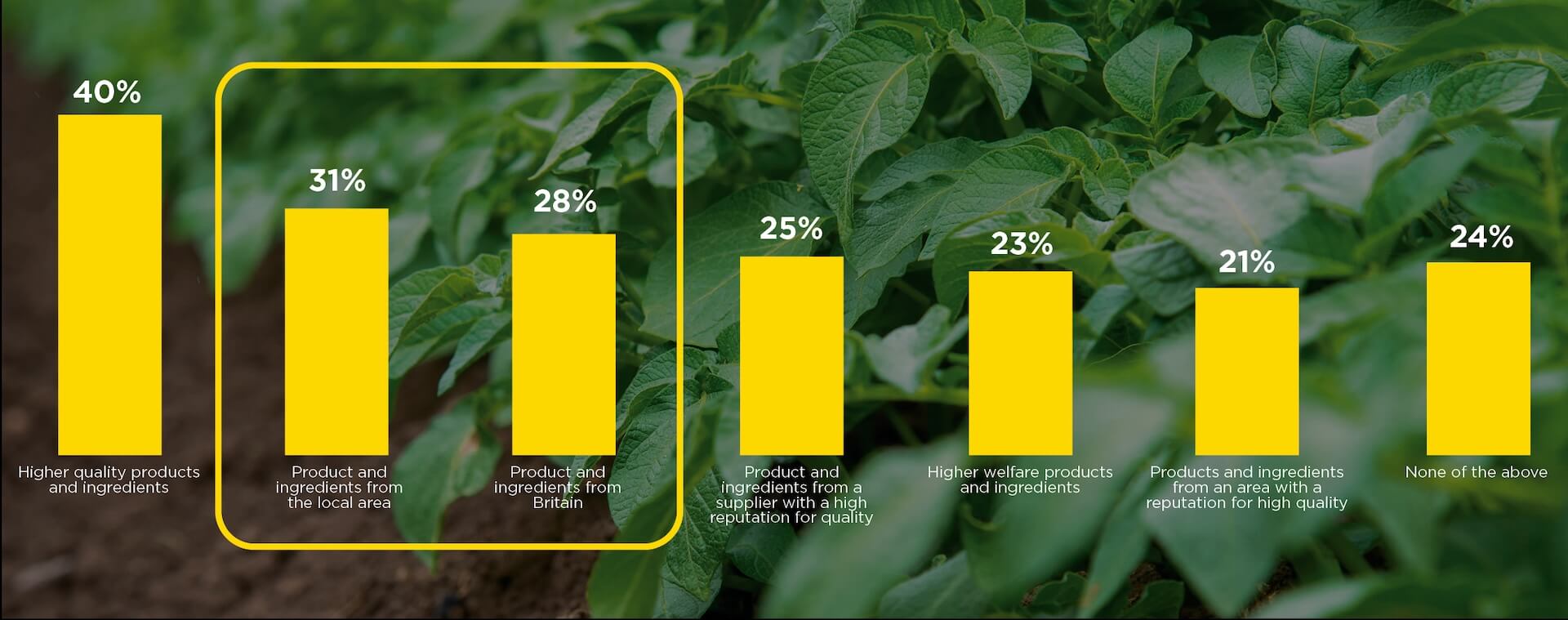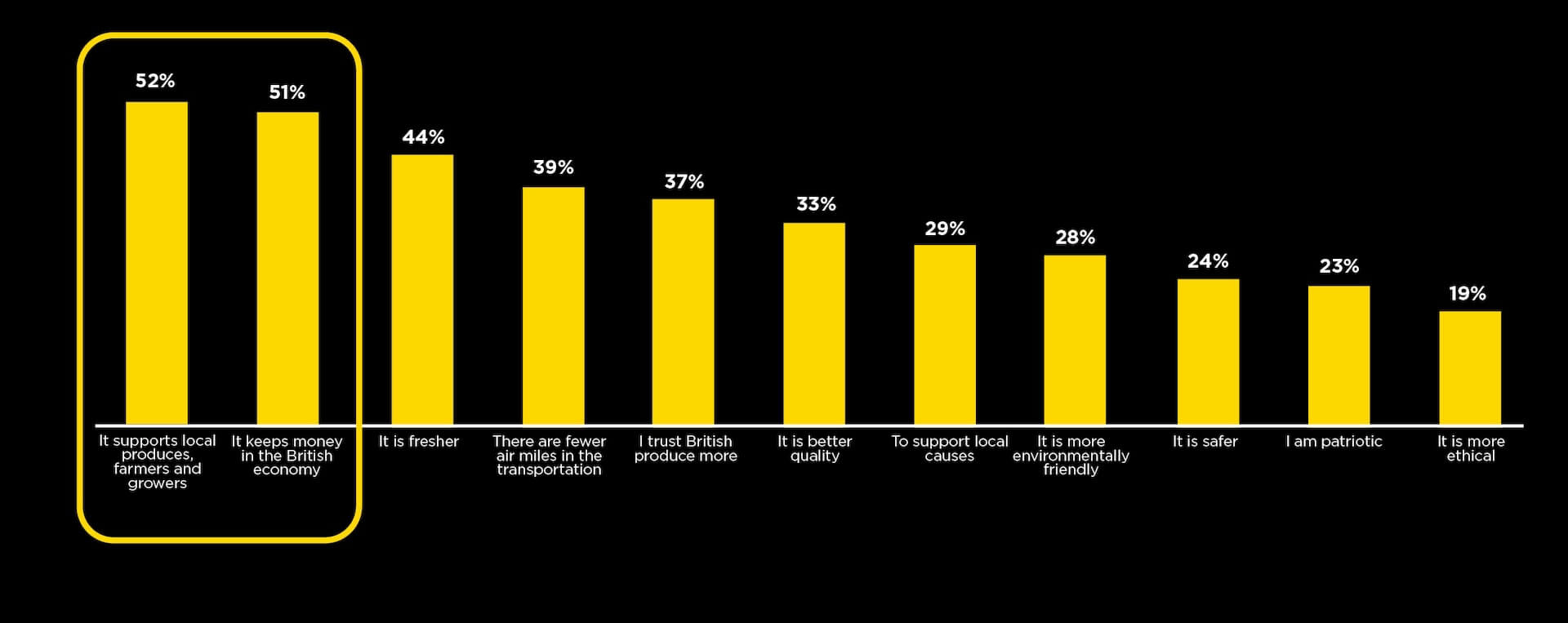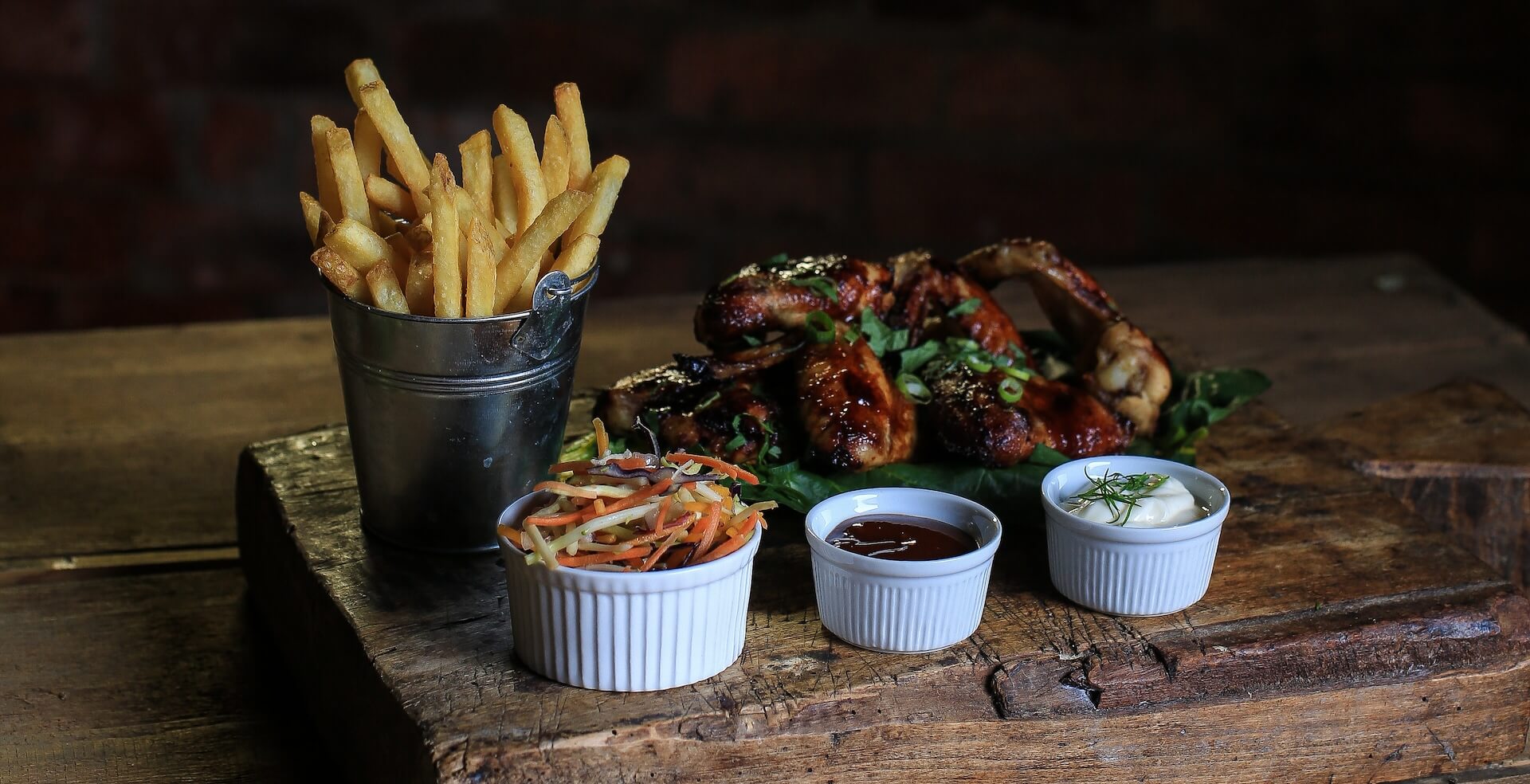Now is the time to make your menus work smarter and more efficiently. We understand that adapting and refining your menu can be a challenge, especially with evolving consumer preferences and operational demands. Many larger brands have the advantage of in-house experts to guide them through these shifts, but independent operators may not always have access to the same level of support.
That’s why we’re offering expert advice to help independent businesses stay ahead. With dining habits continuing to evolve, new McCain-commissioned insights from Egg Soldiers Food Consultants reveal how to re-engineer menus and streamline operations for maximum impact.
Egg Soldiers, a specialised strategic food consultancy, is led by industry experts with extensive experience in concept creation, menu development, and restaurant operations. They have worked with and helped shape industry leaders, from Leon Restaurants to Heston Blumenthal’s The Fat Duck.
The Consultants
“Planning and engineering your menu in a data-driven way and working well with your suppliers to maximise menu potential will be essential in these uncertain times. This is why we’ve partnered up with McCain Foodservice as industry leaders to share our knowledge and insight and ultimately help food businesses succeed”
Toph Ford, Co. Founder of Egg Soldiers
Menu Re-Engineering
Where to start – menu analysis
Our industry has always adapted to shifts in society and advancements in the way we live, eat, and drink. As consumer habits continue to evolve, it’s essential to ensure your business remains forward-thinking and prepared for the future of hospitality.
Changes in consumer behaviour are shaping new dining trends—such as a growing interest in food provenance, an increased demand for convenience through contactless payments and delivery options, and a rise in staycations as people explore dining experiences closer to home. While these shifts bring new considerations, one thing remains constant: consumers still expect an enjoyable and memorable dining experience.
Taking a proactive approach to business planning will help you stay ahead. Simplifying operations through a well-structured, re-engineered menu—focused on high-margin, best-selling dishes—will be more important than ever in driving success.
Before you begin your menu re-engineering, ensure you understand your business’ data first – analysing your numbers will be vital in helping guide you on what to change and what to keep. Combining simple analysis with the expert knowledge you already have of your business will give you the best chance of making the right decisions.
Toph Ford & Stefan Cosser from Egg Soldiers have put together a quick-check analysis guide, and two simple tools to help you on this journey:
1. Which dishes are selling and which are not?
2. Look at both the sales numbers and cash profit from each dish
3. Which dishes are firm customer favourites and which ones might need some improving?
4. Which dishes or ingredients have high waste?
5. How many ingredients are only used in one dish?
6. Are there any operationally complex dishes i.e. heavy prep or ‘service killers’?
Dish scorecard
A dish scorecard can help you get an objective view of dishes and create an action plan for each dish, and the final menu as a whole.
The general idea is to get a simple and clear understanding of the dishes that deserve your time and effort and those that don’t. Below is a guide to the questions you should be asking yourself. You can adjust these to suit your type of business and food offer.
This is your first step to knowing which dishes to keep on the menu, which ones to tweak or improve, and which dishes should be removed (plus whether these dishes need replacing or if you’re simply going to reduce the overall menu – we’ll give you more tips on this in the below tactics checklist).
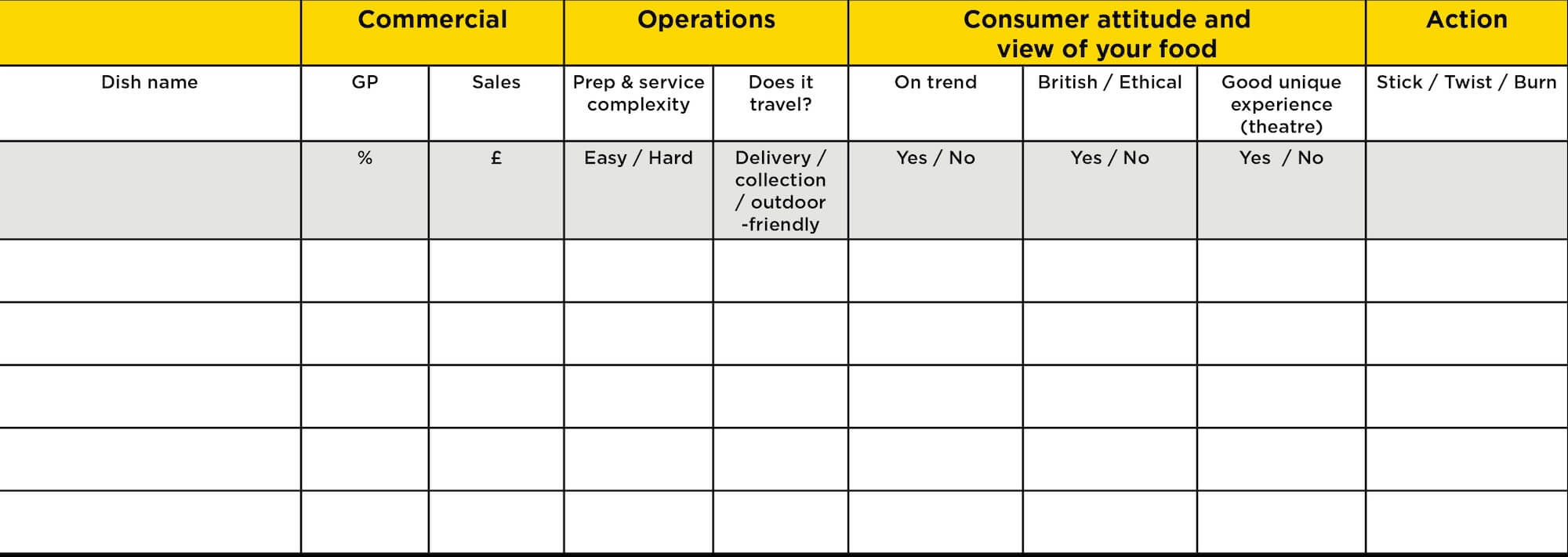
2×2 Grid
A 2 x 2 grid is a simple way of plotting your dishes to find out how well they’re doing – it works alongside your scorecard to give you a fully informed visual idea of your menu performance.
You can change the axis to give you the answers you need – from quality to operational simplicity, to popularity, margin or sales. You could even create several 2 x 2 grids to help you build a great menu analysis model.
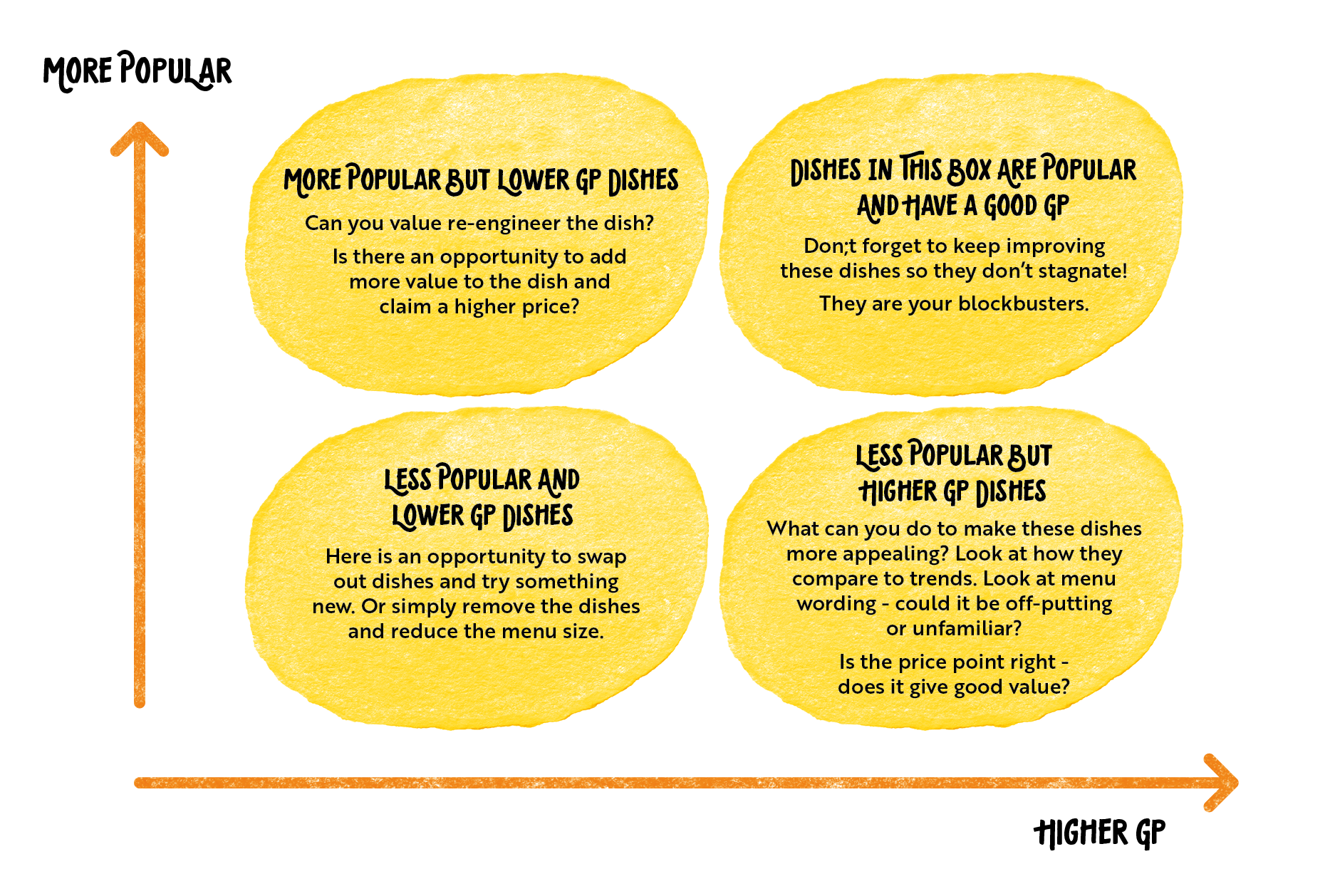
The Important Questions
Let’s tackle some of the common questions and decisions facing all hospitality businesses right now. We’ll then build on the solutions for these as part of our tips and tactics guide for re-engineering your menu.
Should you re-introduce your old menus?
Your customers will be excited to have their favourite dishes available again, but this initial excitement will only last so long. To keep both loyal and new customers engaged, it’s important to introduce something fresh and enticing. This doesn’t require a complete menu overhaul—just one or two new dishes can make a difference. Customers may be drawn in by these additions and still order their usual favourites, or they may return because of the buzz around your new offerings. That’s why industry leaders innovate regularly.
As you plan the next steps for your business, take advantage of the strong UK supply chain to support your menu development by sourcing new items from specialist experts. McCain Appetisers can help increase average order values with minimal complexity by offering innovative sides and add-ons. For example, our mustard-coated dill pickles or sweet and salty onion straws work brilliantly as bold-flavoured side dishes and also serve as flavourful burger toppers to enhance your menu.
How do you create more appealing dishes?
Now is the time to focus on great quality, recognisable dishes with your own added twist/touch. With disposable incomes under pressure, consumers will often hold off on big expenditures like holidays abroad, preferring to spend on smaller treats, such as a meal out, instead.
Introduce special ‘secret’ house sauces, dressings or seasonings that your customers can’t get anywhere else. You can also look at dishes that are difficult or time-consuming to make well at home, for example a slow-cooked piece of meat or a technique that is tricky to perfect such as an interesting dessert. These ideas will help you create a memorable and ownable experience.
How do you make dishes work harder?
Cross-utilising ingredients and components across various dishes is essential. Aim to use ingredients more than once across your menu. Increased usage means increased volume and helps limit wastage. You could introduce ‘add-ons’ to extend 1 dish into 2 or 3, for example, topped fries, and ensure the toppings are components from elsewhere on your menu – this could be a cheese sauce or grated cheese blend, pulled meat or your signature sauces.
How do you create more profitable dishes and menus?
The simplest and quickest approach is to look at upsell opportunities – training your waiting staff to suggest side dishes that match the mains or asking guests if they’d like to add a component. This could be as simple as adding bacon to a burger or a sauce to a main course.
Make sure all your dish costs are up to date. Take any time you have now to review both your suppliers and ingredient pricing.
Do not drive quality out of dishes though – this can often be a knee-jerk reaction but it’s not a good long-term strategy and your customers will react if they feel the quality is slipping. Dishes must deliver your quality standard.
Tactics for Success
Now that you have insights from your data and analysis tools, you can use them to guide your menu re-engineering journey. Our list of tactics and tips will help you focus on key areas to consider while keeping your main business goals in mind.
When re-engineering your menu, it’s important to be realistic—design your offerings around evolving consumer preferences and dining habits. Key factors to prioritise include:
Great quality – Ensure every dish meets high standards to keep customers coming back.
Value for money – Customers are more mindful of spending, so offer satisfying options at the right price point.
Consistency is key – Reliable quality and experience build trust and repeat business.
While some consumers may be more budget-conscious, they still seek enjoyable dining experiences and small indulgences, even during economic challenges. People are looking for ways to treat themselves, so making your menu feel exciting, accessible, and rewarding is essential.
Use our tactics and tips as a final checklist to help refine and optimise your menu for success.
Do some research
Before you start looking at your menu, make sure you do some simple research first.
Look at your local and competitive markets – Have competitors introduced new concepts or changed their menus? How can you adapt and stay ahead? Consider the dynamics of your local customer base, such as office workers, students, and shoppers—are they fully engaged in the area, or has footfall shifted? Identifying trends and gaps in the market will help shape your strategy.
Analyse popular venues and food brands – What dishes are performing well across successful restaurants and delivery platforms? Your menu should reflect what people actively want to eat. Now is the time to be strategic—avoid keeping underperforming dishes just because they’ve always been there. Review top-selling items from platforms like Deliveroo and JustEat to identify must-have menu additions.
Explore new revenue channels – Think beyond your current menu by considering alternative food styles, menu categories, or a dedicated delivery service. Diversifying your offerings can help future-proof your business and attract new customers.
Expand into new day-parts – If your business primarily operates at lunch and dinner, could you introduce a breakfast or brunch option? Test the waters with a simple weekend offering that utilises ingredients you already stock. If the demand is there, this could become a valuable revenue stream without adding significant operational complexity.
Reduce and refine your menu
Concentrate on your blockbuster dishes (what you’re known for, or want to be known for – remember that 80% of spend is often on 20% of the menu) and the dishes that are simple to prepare and serve, ideally by a single person in their own segregated workspace. A reduced menu, full of the most exciting, healthy-margin dishes is where you should start. Reducing your menu also has the added benefit of reducing your prep time and wastage.
Recognisable, comforting food
is likely to be what customers seek out first. The dishes that remind them of how things used to be and make them feel comforted and safe – comfort doesn’t mean boring though; think classic British to global street food options. From Mac n Cheese, to Fried Chicken, to Burgers & Fries, Slow-roasts and Chicken, Falafel or Halloumi Salads, all with your twists and signature touches to make them ownable to your menu.
Value
Consumers are likely to become more aware of value and want to ensure they get the most bang for their buck. This does not mean your dishes need to be cheap or overly large portions. Value means that a dish delivers on the experience and quality promise for its price point. Quite often a restaurant’s most expensive dish is its most popular, as customers associate it solely with your menu and view it as great quality and therefore value. See ‘add-ons’ and ‘bundle deals’ below for a supporting value tool.
‘Add-ons’
Upselling! As highlighted in our Q&A, this is a great tool to drive sales and ATV, while keeping the operation simple – so worth a mention again. What easy-to- prepare, healthy-margin Sides, add-ons or bundle deals can you introduce? Starting with great-value main meal prices will drive your value-for-money message, the addition of add-ons will then put the extra spend in the hands of your customer. Use the McCain Menu Signatures Breaded Mozzarella Cheese Sticks as an add-on perfectly paired with tangy tomato dip.
Time to align with trends
Delivery is clearly the biggest trend right now. However, the trends consumers have been excited by over the last few years have not disappeared, so don’t forget them when planning your menus. Here are a few to consider:
The Experience – This is the heart of any great restaurant. Make sure your customers can experience the best of your brand, whether it’s online, on social media or in ordered food
Communication – Talk to your customers through every channel available to you. Tell them what you’re doing and why
Plant-based – A category or even menu of its own, which will need both healthy and indulgent dish options
Free-from – Give your customers choice, even if it’s only 1 or 2 dishes to start with. Think low and no carb, dairy free, gluten free. Either select dishes that naturally deliver this or let the expert suppliers like McCain take this hassle and worry away from you. They’ve done all of the testing and accreditation on your behalf, so you can serve free-from meals with confidence
Health & Wellness – Include options on your menu, but ensure you balance with the comforting, indulgent treat dishes that your customers will crave
Sharing – Whether small plates or large dishes to share, sharing options give customers a quick and easy choice on the menu and allow you to plan your prep. Great for families and home delivery, and for bundle deals
Street food – Take flavour and ingredient combination inspiration from the amazing street food markets we have across the UK
Freshness and flavour punch – Think savoury, sweet, spicy, sour and pickled i.e. craveability. Use recipes from cuisines that relate easily to this such as SE Asian, Mexican, Modern Indian etc. Your street food research will give you great examples of this
Value – While thinking through the above points, ensure that all dishes deliver on value vs. price point
Think British
If there are any positives to take from the current crisis, it is certainly how our country has pulled together and the pride we have in our people (led by the wonderful key workers). We are also witnessing clear improvements in environmental damage, very much due to the lack of travel and transport of goods. This all points to an increase in the demand for locally grown produce, supporting our UK growers, farmers and manufacturers, while helping the environment and reducing carbon footprint. This is an opportunity to work with suppliers who source from British farms, and proudly tell your customers about it. McCain source and manufacture in the UK and with 250 British farms and a number of longstanding partnerships spanning three generations of farming families, they are committed to using British potatoes wherever possible. This will be more important to your guests and the planet than ever before.
Delivery
If delivery wasn’t already the future of hospitality, it certainly is now. It will be a vital source of revenue for most hospitality businesses in the here and now, but it will also help to future-proof your business – having a great delivery offer could help see you through these times. A great delivery menu will follow the same core tactics as your eat-in menu, but also requires careful additional planning. For example, travel quality is vital – only include dishes that will still be great after they’ve been on a scooter ride. This means robust ingredients that will not suffer from going limp or soft during the journey. If unavoidable, consider packing these items separately, away from the main hot component to avoid sweating. Use the specialist supply chain that is available to you; these suppliers have invested their skill and development time already to create menu items that are perfect for delivery. McCain SureCrisp have been specifically designed and tested to keep its crispness and quality through the delivery process. The game-changing clear-coat fry allows you to offer a consistently crispy fry across delivery, takeaway and in-restaurant. Stays crispier than uncoated fries up to 20 minutes in a closed delivery bag, allowing you to deliver further in non-contact delivery.
Lean on your suppliers
With a need to ideally reduce labour, look to utilise your suppliers’ skill-sets and your wholesalers’ knowledge of what is available to you. We’re all in this together, so you’ll be surprised how eager your supply base is to help you. Let our expert UK supply chain support you. Getting in touch with suppliers will also simply be a chance to check in on them and see if they’re good to go when you are.
McCain Foodservice Solutions pride themselves on developing expert products that help you overcome specific challenges like soggy delivery fries with the revolutionary SureCrisp range. The McCain Chef Solutions Simply wedges reduce preparation time in the kitchen with great-quality potatoes simply peeled, sliced into wedges and blanched ready for use as side of plate or as an ingredient.
Cross-utilisation is key
Making your ingredients and dishes work harder will be vital, and will help reduce waste also. Set yourself a target that an ingredient or dish component needs to be used in 2-3 dishes minimum, otherwise it doesn’t make the cut. How can you utilise your recognisable dishes more – take your Chicken Wings and create 2 sections (1 for dipping and 1 for tumbling) with your own house-made sauces, create premium topped versions of your Mac n Cheese, or breadcrumb it into nuggets and serve as a starter and side dish? Extend your fries into a selection of loaded options, using components from elsewhere on the menu, such as cheese sauce and cheese blends, house-made sauces and chilli beef brisket. Utilise that brisket chilli and create Chilli Beef Croquettes.
When serving recognisable dishes, it’s vital you then add your own personal touch or twist, to make it yours. This can be a simple sauce, garnish or house-made pickle.
Outsourced VS in-house made
Another opportunity to help you reduce labour costs. The skill and trick here is to source great pre-made base items from specialist suppliers and then add your own simple in-house touches to make it ownable to you. For example, sauces, garnishes, different ways of preparing and cooking etc. Make sure your recipes are special/secret and not something that can easily be made at home or found elsewhere.
Ingredient format
The easiest place to start is fresh vs. frozen. By using frozen items you can reduce wastage, as long as you can still deliver the quality. Select the best frozen food available, and balance this with freshly prepared ingredients across your menu. Let the expert suppliers take some of the prep pressure away. This will be another vital tool in helping you deliver consistent dishes.
Don’t forget the kids
With the increase in delivery likely to continue, families will be eating together more often. So remember to offer good children’s options, or food that is great for sharing with the family.
DISCOVER OUR RANGES





